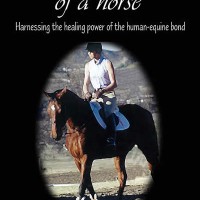The other day, a client in my office brought up an interesting issue. From the time she was young, she recalls being a “dog person”, and always finding great joy and comfort in their presence. However, recently, she has noticed that the mere sight of dog hair in her house can send her into a fit.
After assessing, and ruling out any OCD diagnosis, and looking back into her history to determine exactly when this frustration started, what became clear is that around the time her first child was born (she has two — ages 5 and 7), she began to resent the dog hair in the house.
So I asked her about how the process of maternal bonding had gone. Pausing, she related that actually she had struggled mightily with the bonding process, and at times had to force herself to hug, comfort, and console her young boy. Given that we had already discussed her fractured relationship with her mother who could be overbearing, critical, and downright nasty, we concluded that the development of oxytocin (which typically happens during the mother-child bonding phase) had also suffered.
My client had compensated for the lack of oxytocin by developing strong and consistent relationships with her dogs. However, when challenged with developing these same bonds with her children, her lack of oxytocin began to seriously affect these relationships. At that point, her frustration around this issue was targeted at the only “safe” thing — the dogs.
Interestingly, my client’s second child, a young girl, had also recently been diagnosed with a movement disorder, where when stressed, she “flaps” her arms. Part of the difficulty this child and my client were having was in containing this girl’s anxiety and reducing the amount of “flapping” episodes.
Equine therapy had actually already been suggested for my client’s daughter, but when I suggested that she herself participate in equine therapy, she paused again.
Being around horses, like being around dogs, I explained, could boost her oxytocin levels. Simply the process of bonding with an animal, or human, has been shown to elevate oxytocin. And unlike my client’s dogs, the relationship that she could build with horses was clear and free from any previous emotional attachment.
The truth is equine therapy can help any person boost levels of oxytocin. And further, elevated levels of oxytocin are also associated with an improved sense of wellbeing, greater levels of life satisfaction, and more fulfilling relationships. This is probably also why impaired bonding in equine relationships is almost unheard of.
